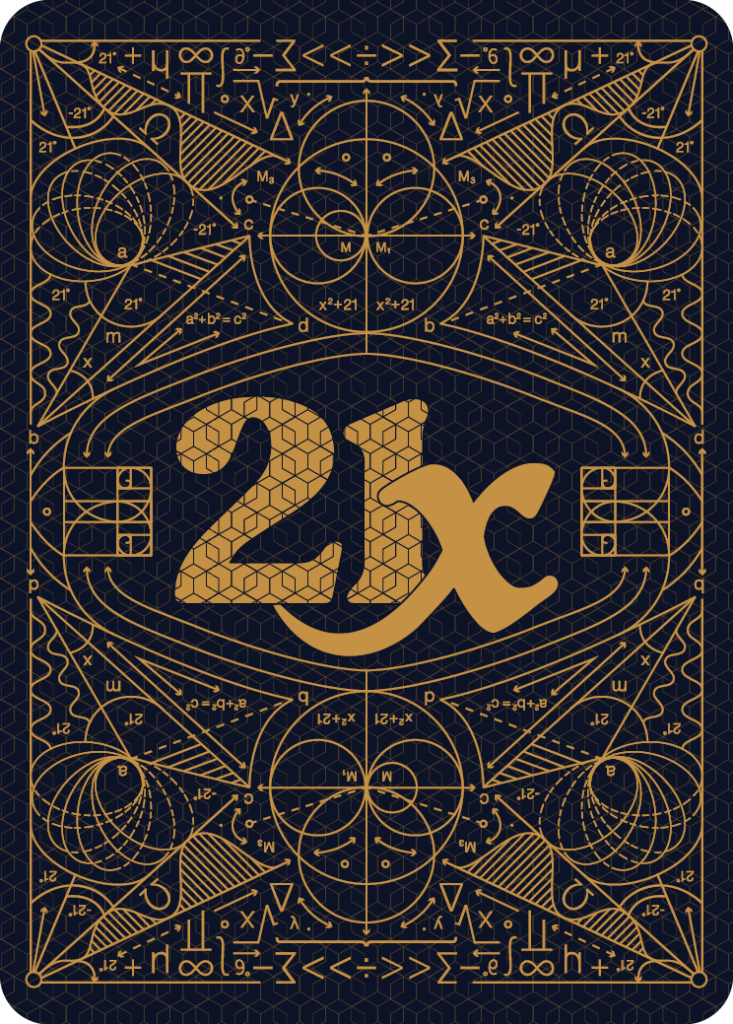Kickstarter for algebraic blackjack game 21X launched
The Aperiodical 2023-09-28
Today is the launch of the Kickstarter for 21X, a new card game from board game studio Naylor Games, which describes itself as ‘the Countdown numbers game meets blackjack’. The creators sent us a copy to play with, and I took it along to Manchester MathsJam for a road test. (Read on for info about how you can win a copy!)
The main premise of 21X should be familiar to anyone who’s played a game of Blackjack: the aim is to have a set of cards in your hand which total 21. Sounds simple – but the cards aren’t regular playing cards. Each contains an algebraic expression, and players must assign a value to the variable(s) on the cards, and then evaluate the total, which is the value they’re trying to get to 21.

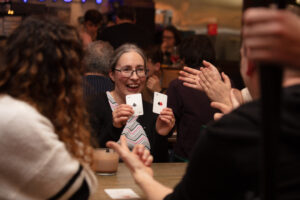
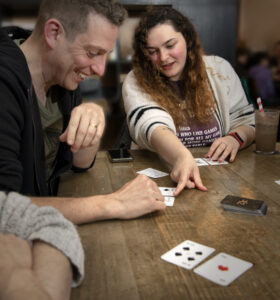
So, if you were holding a $3X$ card and a $4X$ card, you could decide that $X=3$ to give yourself the desired total of 21. The same value of X must apply across all your cards, but you can change it each time you add more cards to your hand.
Within the game, there are several difficulty levels depending on which cards you use – the simplest (triangle) has linear expressions which are mainly sums or multiples of X; the next level (square) also includes exponents, fractions and bracketed terms; and at the highest level (pentagon) there’s even more complex expressions. Each set includes some cards which, in addition to X, also use the variable N – which represents the number of cards you’re holding, so your decision to ‘twist’ and grab an extra card will change this value.
We played a few rounds at Manchester MathsJam (a monthly opportunity for like-minded self-confessed maths enthusiasts to get together in a pub and share stuff they like, including fun games they’ve been sent a copy of).
One thing we noticed quite quickly (apart from the fact that the card backs are absolutely GORGEOUS – click the image here to enlarge) was that it isn’t nearly as difficult as you might imagine – facing down a set of cards like the one I faced (below) there were several ways to simplify it. In this case, I kept taking an extra card up to the maximum of 5, since the first four cards I had frustratingly wouldn’t let me make an odd number, and I was really determined to get 21.
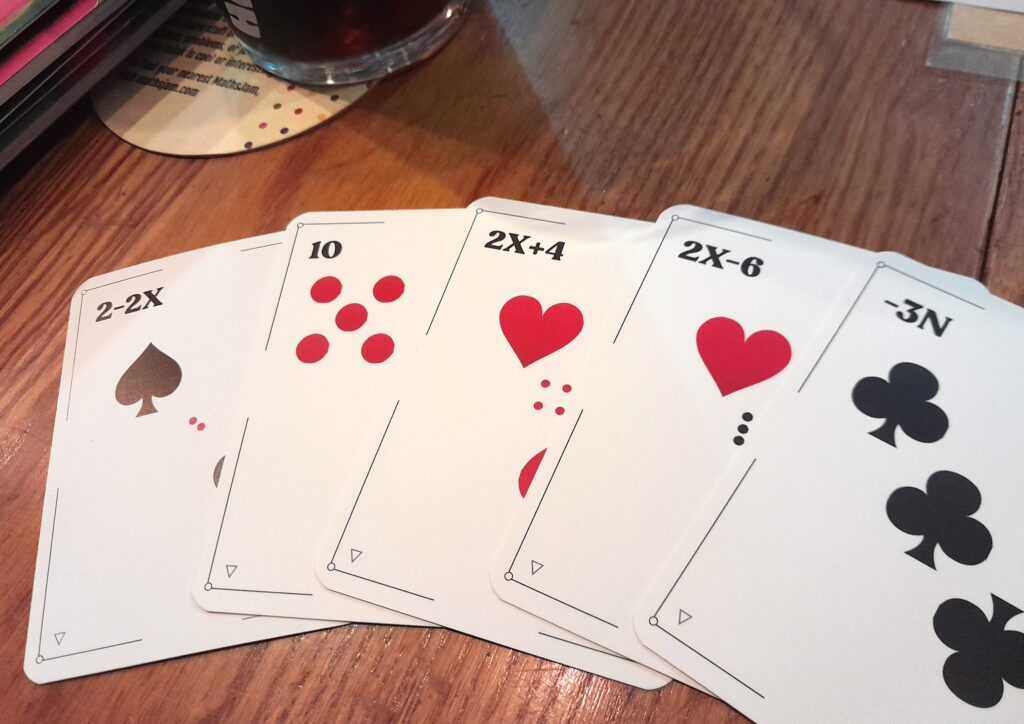
But despite having a huge hand of cards, I could immediately see that the left three cards, which contain a 2X and a -2X, cancel out and will always be worth a total of 16; then I just needed to pick a value of X that worked with N=5 to make the rest of the cards add up to 5…
There are definitely some hands you can be dealt which make it easy to pick a value for X (especially if several of them cancel out!) but the competitive aspect means that if you’re the first one to realise this, you can make 21, or close to it, before anyone else, and the time pressure adds a bit of challenge.
We had fun playing this, and it’d also be a great way to develop arithmetic skills and understanding of algebra (or while away some hours in the pub!) We also enjoyed the care that’s obviously gone into it – rather than standard card suit symbols, there’s a lovely pattern in the design that reflects the card’s value, using the suits to cleverly represent positive and negative variables.
A Game and a Puzzle
Naylor also sent along some 21X-based puzzles – example ‘hands’ that present the challenge of determining if there’s a value of X that’ll give you a total of 21. We set some of these up to play with, and I’ve included pics below (no spoilers in the comments).
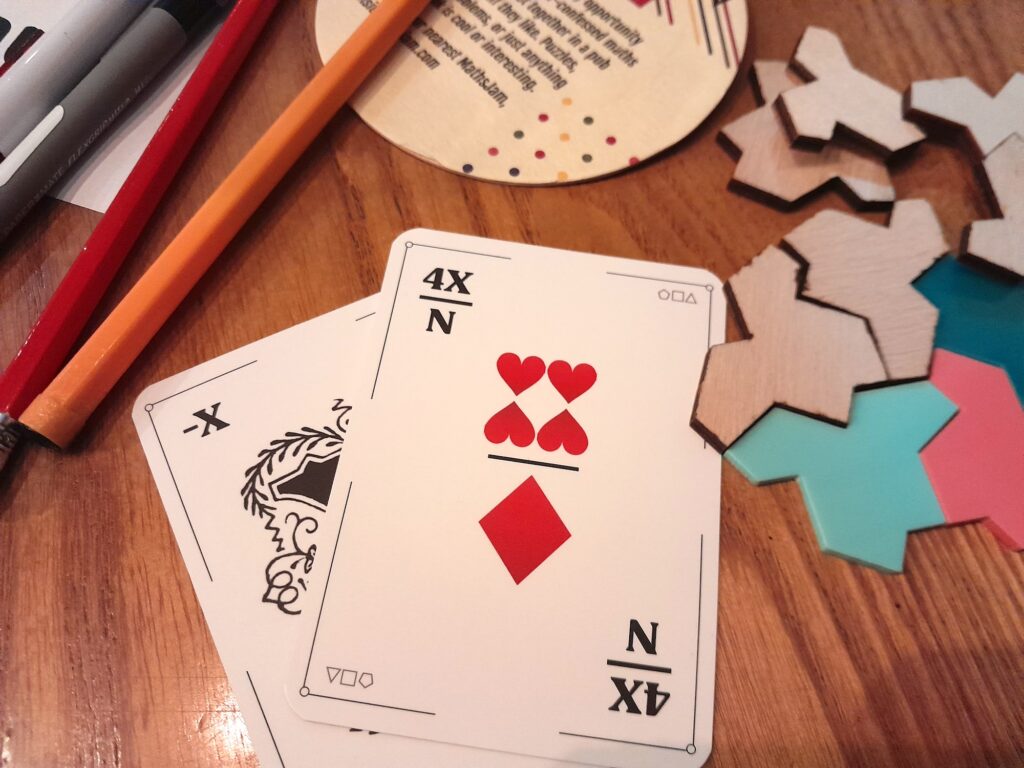
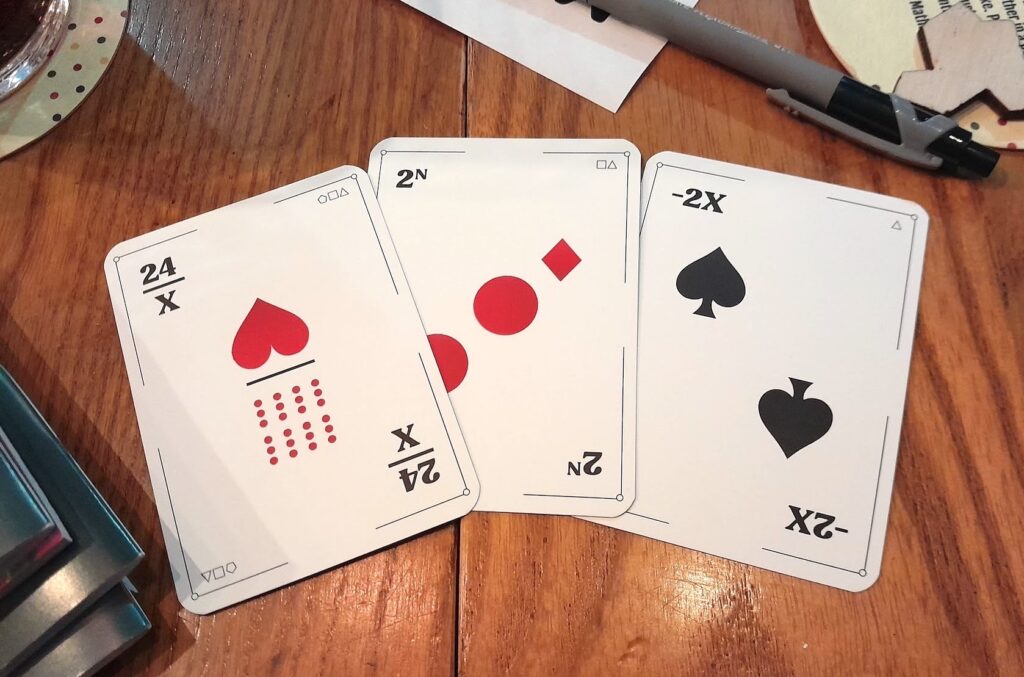
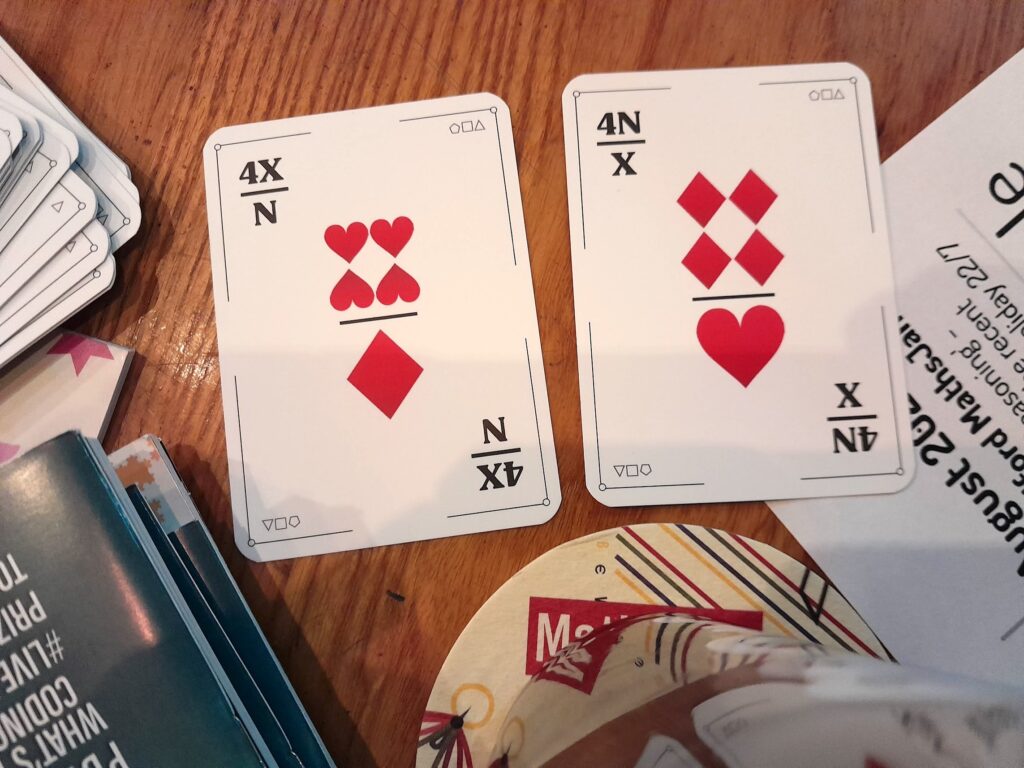
In addition to the base set of cards, Naylor Games plan to add extra cards to the game through collaboration with mathematical stars – Professor Marcus du Sautoy has contributed an idea for a special bonus card to add to the game, which unsurprisingly involves prime numbers. They’ve also spoken to several other prominent maths communicators, and *cough* I’ve also thrown some ideas at them, so if the Kickstarter is successful, the final version of the game will potentially include several special celebrity rule cards, one of which is mine. I couldn’t possibly hint at what my card will be – you’ll have to grab a copy to find out. Here’s a quote from Marcus himself, if you were still on the fence:
“A clever take on a classic game. As a lover of games and maths, 21X pushes all my buttons. I was excited to be able to contribute my own twist to the game by authoring one of the cards. A game to get the brain cells buzzing.”
Professor Marcus du Sautoy OBE
Competition
As if all this weren’t exciting enough, Naylor have offered us a couple of copies of the game to give away – so we’re running a little competition using the puzzles from the photos above. In each case, work out the value of \(x\) that gets you a total of 21 (if an exact score of 21 is not possible, get as close as you can!) and fill them in below. Again, no spoilers in the comments, but if you complete this form, once the game is ready to ship we’ll pick a winner or two randomly from the correct entries and contact you about sending your game.
